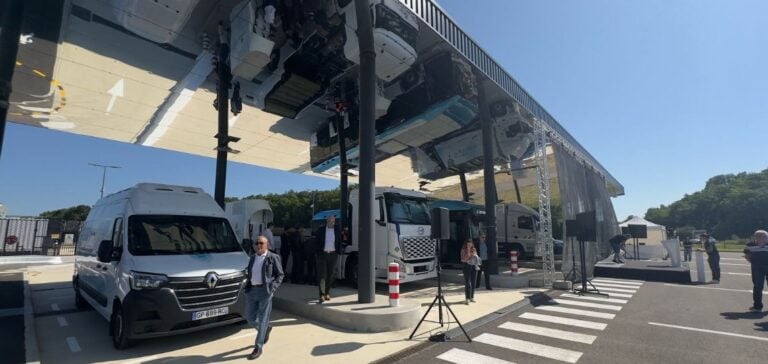Dijon métropole has taken an important step towards energy transition with the inauguration of its first green hydrogen production and distribution station. Launched in the presence of François Rebsamen, Mayor of Dijon, Marie-Guite Dufay, President of the Burgundy-Franche-Comté region, Marion Deridder Blondel, President of ENGIE Hydrogen Solutions, and Dominique Darne, President of Inthy, the project marks a key step towards reducing CO2 emissions and promoting renewable energies. The station will reduce CO2 emissions by 1,200 tonnes a year, equivalent to 10 million kilometers driven in a city car. Starting in 2024, 4 refuse collection vehicles will be powered by green hydrogen, with a gradual expansion of the fleet. By 2035, all the city’s buses and 73% of its refuse collection vehicles will run on decarbonized energy.
Dijon Métropole Smart EnergHy: a strategic alliance
This project is based on collaboration between public and private players, brought together in the Dijon Métropole Smart EnergHy joint venture. ENGIE Solutions, Inthy, Dijon métropole and ADEME Investissement are contributing their expertise to ensure the success of this innovative project.
Dijon Métropole Smart EnergHy is responsible for investments in the hydrogen infrastructure, and is remunerated by supplying green hydrogen to vehicles. Dijon métropole is investing in the vehicles and facilities needed to support this energy transition. The project is based on a circular economy model, with local production of green hydrogen fueled by green electricity generated by the combustion of waste from the Energy Recovery Unit (UVE). The station has 3 pumps for heavy vehicles and one for light vehicles, with a production capacity of 430 kg of hydrogen per day.
An ambitious territorial vision
Dijon is committed to becoming a climate-neutral metropolis by 2050, with ambitious targets for reducing greenhouse gas emissions and fossil fuel consumption. Dijon’s territorial energy policy is based on energy savings and an energy mix that favors locally-produced renewable energies. For the past 20 years, the metropolis has been implementing innovative ecological and energy transition initiatives, reducing greenhouse gas emissions by 23% between 2010 and 2020. With this project, Dijon continues to lead the way in sustainable development and energy transition.
The project, financed to the tune of 100 million euros, benefits from subsidies totalling over 24 million euros from ADEME, the Bourgogne-Franche-Comté Region, the European Union and the Banque des Territoires. The North station, with a daily capacity of 430 kg of hydrogen, and the future South station, scheduled for 2026, will meet the city’s growing need for green hydrogen.






















